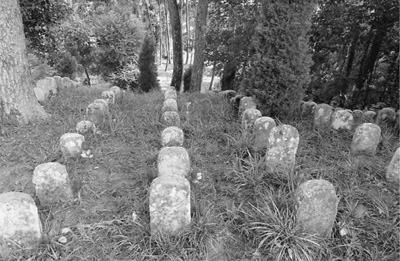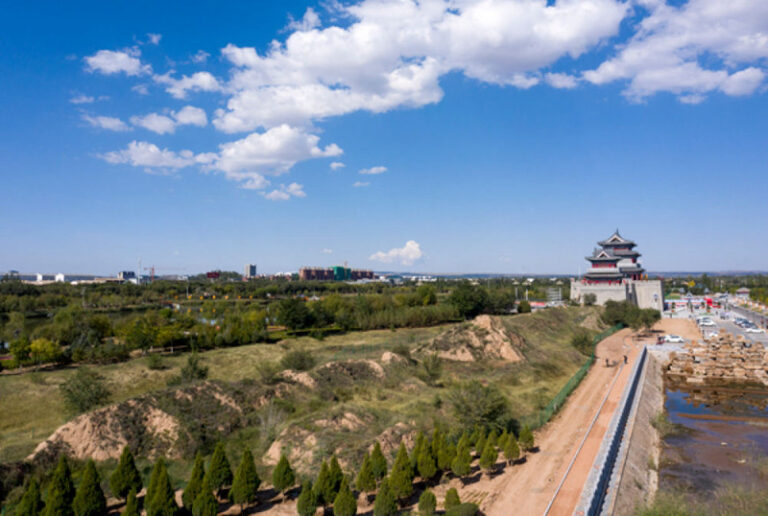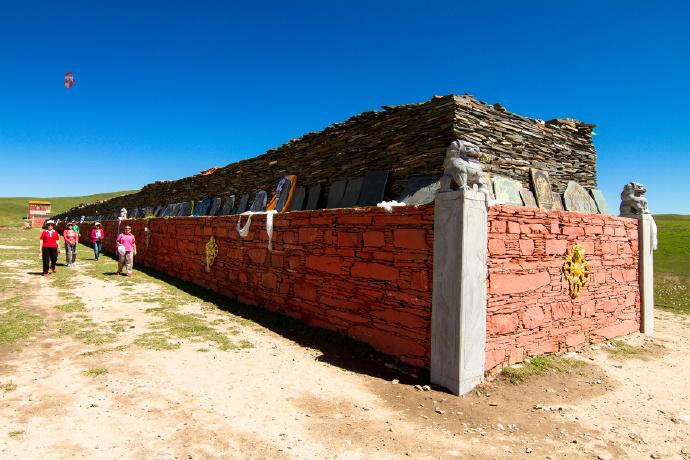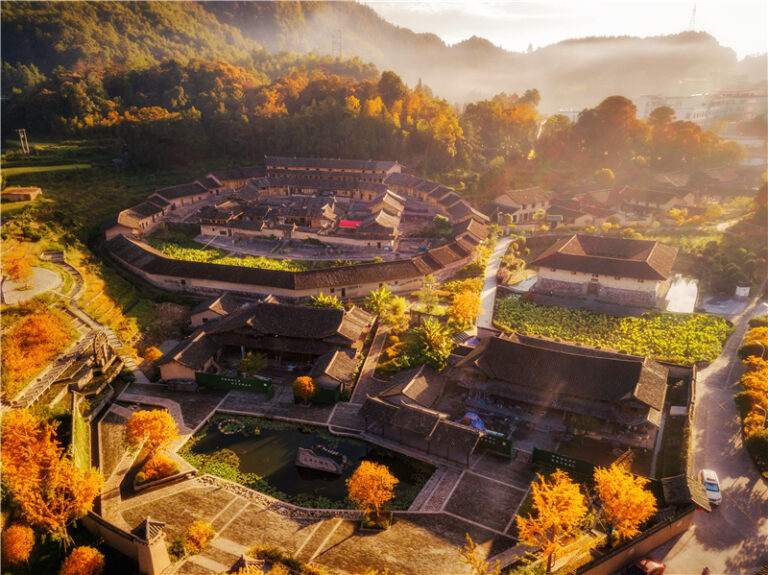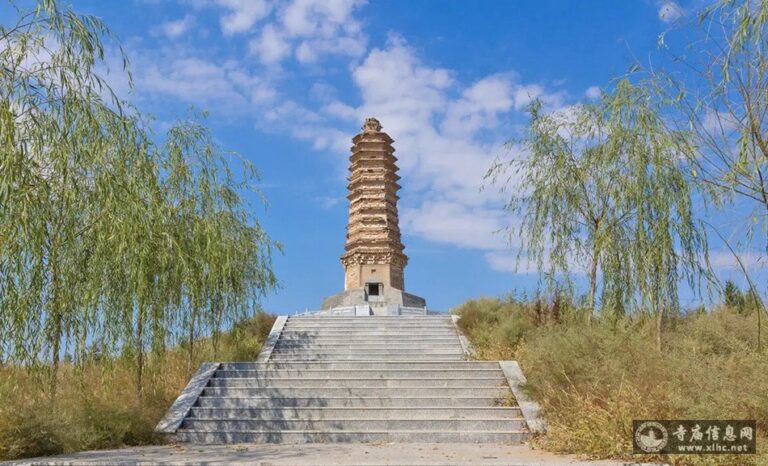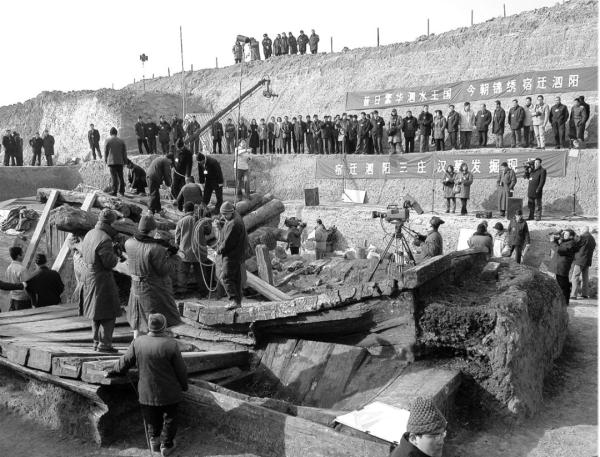Unveiling Jiyuan Fengxianguan: Your Ultimate Guide to Scenic Wonders
An Essential Guide to Visiting Jiyuan Fengxianguan
In This Guide
- An Essential Guide to Visiting Jiyuan Fengxianguan
- The Rich History of Jiyuan Fengxianguan
- Main Highlights: What to See at Jiyuan Fengxianguan
- Planning Your Visit: A Practical Guide
- Tickets, Hours, and Booking
- How to Get There
- Local Cuisine and Accommodation
- Frequently Asked Questions
- Final Thoughts on Your Trip
Nestled in the heart of Jiyuan, Henan Province, Jiyuan Fengxianguan, also known as Fengxian Temple, is a remarkable historical and cultural gem that has captivated visitors for centuries. Established during the Tang Dynasty in 685 AD, this ancient temple is a significant site of Taoist worship and has been frequented by numerous renowned Taoist figures throughout history. Its unique architectural style and serene atmosphere make it a must-visit destination for those seeking both spiritual enrichment and a glimpse into China’s rich heritage.
The temple complex features a striking collection of ancient structures, with the Three Pure Ones Hall at its center. This hall, built during the Jin Dynasty in 1184, is renowned for its exquisite use of jujube and persimmon wood as beams, showcasing an architectural technique known as “reduced-column construction.” This innovative design not only exemplifies the craftsmanship of the time but also imbues the hall with a distinctive character that stands out among other historical sites.
Visitors to Fengxianguan can immerse themselves in the tranquil surroundings, where the hustle and bustle of modern life seems to fade away. The temple’s lush gardens, winding paths, and majestic trees provide a peaceful backdrop for reflection and meditation. As you explore the temple grounds, you will also encounter various relics and inscriptions that tell the story of its storied past, further enhancing the experience.
Whether you are a history enthusiast, a spiritual seeker, or simply looking for a picturesque escape, Jiyuan Fengxianguan offers a captivating glimpse into the spiritual and architectural legacy of ancient China. Prepare to be enchanted by this serene sanctuary, where the whispers of the past continue to resonate in the present.
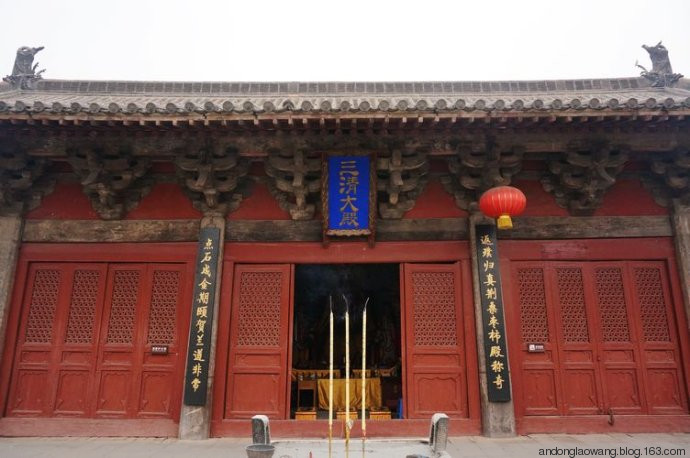
Jiyuan Fengxianguan.
The Rich History of Jiyuan Fengxianguan
Jiyuan Fengxianguan, also known as the Fengxian Temple, is a remarkable testament to China’s rich cultural heritage and architectural prowess. Nestled in the city of Jiyuan, Henan Province, this temple complex has a storied history that dates back to the Tang Dynasty, specifically the year 685 AD. Originally established during the reign of Emperor Xuanzong, Fengxianguan served as a significant center for Daoist practice, attracting many revered Daoist masters throughout the centuries.
Throughout its history, the temple has undergone several renovations and expansions, reflecting the evolving architectural styles and religious practices of different dynasties. The most notable structure within the complex is the Sanqing Hall, which was rebuilt during the Jin Dynasty in 1184. This hall is particularly remarkable for its unique construction, utilizing local materials such as jujube and mulberry wood for its beams and columns. This choice of materials is not only distinctive but also steeped in symbolic meaning, as these woods are traditionally associated with fortune and longevity.
Fengxianguan also features various other buildings that date back to the Ming and Qing Dynasties, including the Yuhuang Hall, which showcases the grandeur of traditional Chinese architecture. The temple complex, although not as expansive as it once was, comprises several courtyards and halls, with the main structures aligned along a north-south axis, a common layout in Daoist temple design.
The temple has been recognized as a significant cultural relic, designated as a key protected historical site in 2001. It houses over twenty valuable artifacts, including inscriptions and statues that trace the temple’s long-standing influence in the realm of Daoism. Among these artifacts are the Tang Dynasty “Taishang Laojun Stone Inscription” and the Song Dynasty imperial poem records, reflecting the temple’s enduring legacy in Chinese religious and cultural history.
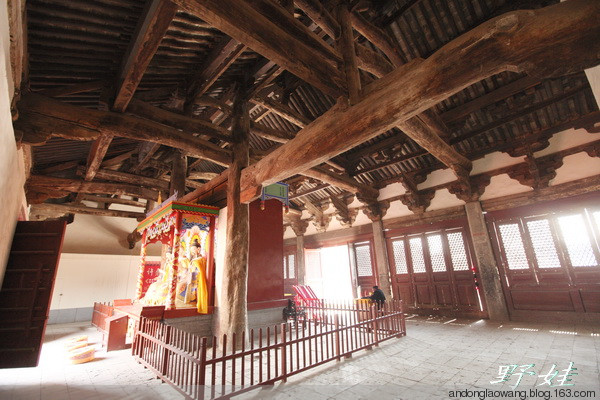
Jiyuan Fengxianguan.
Despite the passage of time and the challenges it has faced, Jiyuan Fengxianguan remains a serene oasis where visitors can immerse themselves in the spiritual atmosphere and admire the intricate craftsmanship of ancient Chinese architecture. Today, it serves not only as a place of worship but also as a window into China’s rich spiritual past, inviting all who visit to reflect on the deep-rooted traditions that continue to shape the culture of this region.
Main Highlights: What to See at Jiyuan Fengxianguan
Nestled in the picturesque city of Jiyuan, Jiyuan Fengxianguan, also known as Fengxian Temple, is a notable historical site that captivates visitors with its rich heritage and architectural splendor. Here are the key highlights that make this temple a must-visit destination:
-
Historical Significance: Established during the Tang Dynasty in 685 AD, Fengxianguan has been a significant site for Taoist practices, attracting renowned Taoist masters throughout history. It represents an important cultural and religious landmark in Chinese history.
-
Architectural Marvel: The temple complex features the impressive Sanqing Hall, notable for its unique construction using jujube wood beams. This architectural style is a fine example of ancient Chinese craftsmanship, distinct in its aesthetic and structural design. Fengxianguan is sometimes referred to as Jingliang Temple, a nod to the materials used in its construction.
-
Cultural Artifacts: The temple houses over twenty valuable relics, including ancient stone tablets that commemorate significant historical events and figures, such as the Tablet of the Great Supreme Old Lord from the Tang Dynasty and poetry inscriptions from the Song Dynasty. These artifacts provide insight into the historical depth of the temple and its role in Taoist traditions.
-
Serene Atmosphere: Unlike many bustling tourist attractions, Fengxianguan offers a tranquil environment, making it an ideal spot for reflection and spiritual contemplation. The relatively low visitor traffic allows for a more intimate experience with the surroundings.
-
Free Admission: One of the delightful aspects of visiting Fengxianguan is that entrance is free, making it accessible for everyone to explore this cultural treasure without the burden of an entry fee.
-
Natural Beauty: The temple is beautifully situated within a natural landscape that enhances its spiritual ambiance. Visitors can enjoy the scenic views of the surrounding mountains and forests while immersing themselves in the tranquility of the site.
-
Recommended Visit Duration: To fully appreciate the temple and its surroundings, a visit of 1 to 2 hours is recommended. This allows ample time for exploration, reflection, and photography.
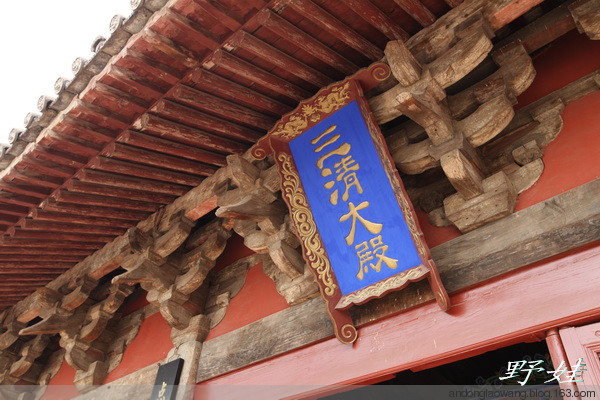
Jiyuan Fengxianguan.
Visiting Jiyuan Fengxianguan is not just about witnessing ancient architecture; it is an opportunity to connect with the spiritual essence of Taoism and appreciate the historical narratives woven into its structure. Whether you are a history enthusiast, a spiritual seeker, or simply looking for a peaceful retreat, this temple promises a rewarding experience.
Planning Your Visit: A Practical Guide
Visiting Jiyuan Fengxianguan (奉仙观) offers travelers a unique glimpse into China’s rich history and architectural heritage. Here’s everything you need to know for a practical visit to this ancient Taoist temple.
Getting There
Fengxianguan is located at 265 Jingliang North Street, Jiyuan City, Henan Province. The site is accessible by public transportation, including buses that connect to major points in Jiyuan. If traveling by car, ample parking is available nearby, making it convenient for those exploring the area by car.
Opening Hours
While specific hours can vary, it’s advisable to check for the latest information directly with the site or local tourism boards before your visit. Typically, the temple is open during daylight hours, accommodating guests who wish to experience the tranquil ambiance of this historical site.
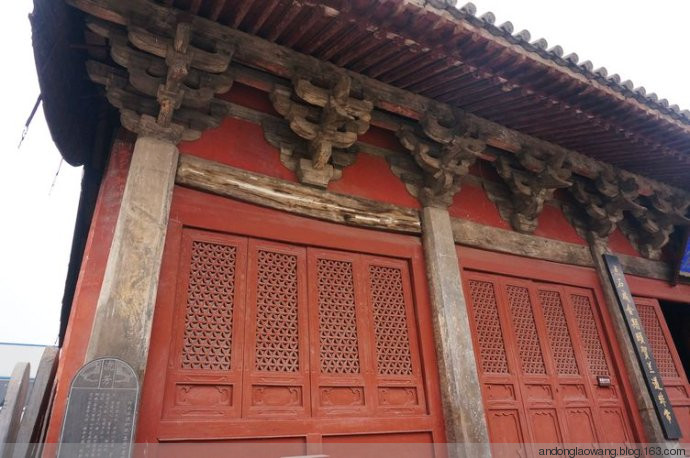
Jiyuan Fengxianguan.
Admission Fees
Entry to Fengxianguan is free, allowing visitors to explore this ancient structure without any cost. This makes it an excellent stop for budget-conscious travelers looking to enrich their cultural itinerary.
Duration of Visit
It is recommended to allocate approximately 1 to 2 hours for your visit. This timeframe is sufficient to appreciate the architecture, take photographs, and absorb the serene atmosphere of the temple grounds.
Architectural Highlights
Fengxianguan, also known as Jingliang Temple, showcases stunning traditional Chinese architecture. The main hall, known as the Sanqing Hall, is particularly notable for its unique construction using jujube and persimmon wood for its beams. This choice of material is rare and reflects a fascinating blend of cultural significance and aesthetic design.
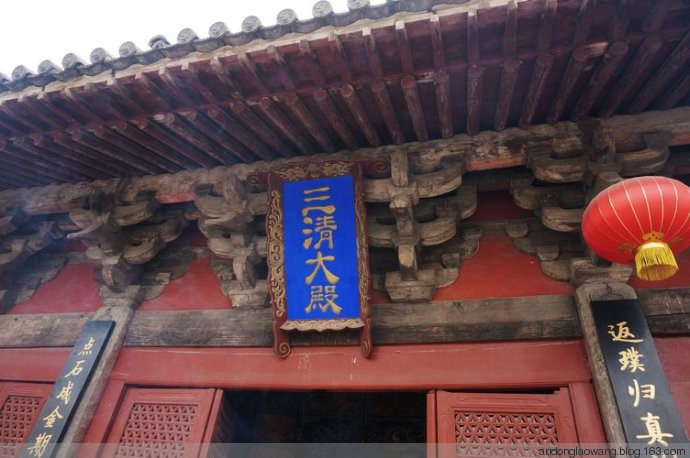
Jiyuan Fengxianguan.
The temple complex features several historic structures, including the Qing Dynasty Mountain Gate and the Ming Dynasty Jade Emperor Hall. Each building holds immense cultural value and houses various artifacts, including inscriptions that highlight its storied past and connections to prominent figures in Taoism.
Tips for Visitors
- Photography: The temple’s architecture and serene environment make it an excellent location for photography. However, be respectful of the religious practices that may be occurring during your visit.
- Dress Code: As Fengxianguan is a religious site, it is advisable to dress modestly. Comfortable footwear is also recommended, as you may be walking on uneven surfaces.
- Quiet Respect: Maintain a respectful demeanor when visiting; many worshippers frequent the site for spiritual reasons.
Nearby Attractions
After visiting Fengxianguan, consider exploring other nearby attractions in Jiyuan City, such as:
– Wangwu Mountain: Known for its natural beauty and hiking trails, this mountain is a short drive away and offers stunning views.
– Jidu Temple: Another significant historical site that reflects the rich cultural tapestry of the region.
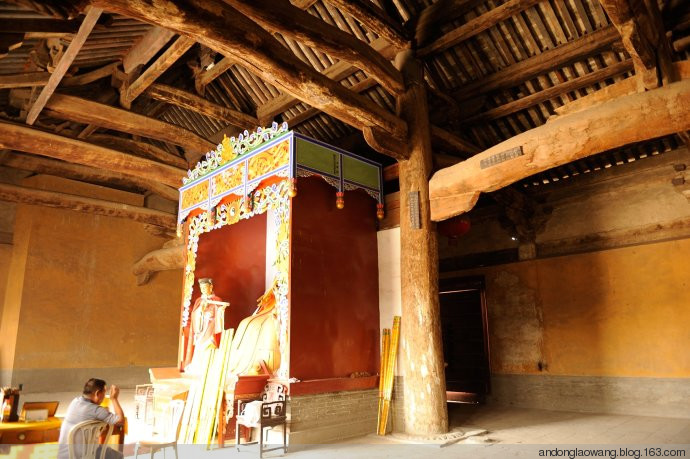
Jiyuan Fengxianguan.
Conclusion
Jiyuan Fengxianguan is not just a destination but a journey into the heart of Taoist culture and Chinese architectural ingenuity. With its free admission, serene environment, and rich history, it’s a must-visit for anyone traveling in Henan Province. Plan your visit to soak in the tranquility and beauty of this remarkable site.
Tickets, Hours, and Booking
When planning your visit to Jiyuan Fengxianguan (奉仙观), it’s essential to know the ticketing details to ensure a smooth experience.
Ticket Information
Admission Cost:
Entrance to Jiyuan Fengxianguan is free of charge, making it an accessible destination for all visitors. This unique aspect allows guests to enjoy the serene environment and historical architecture without the burden of an entry fee.
Opening Hours:
While the specific opening hours can vary, it is advisable to confirm the current schedule by contacting the site directly before your visit. Typically, the site opens in the morning and closes in the late afternoon.
Recommended Visit Duration:
To fully appreciate the beauty and tranquility of Fengxianguan, it is suggested to allocate about 1 to 2 hours for your visit. This timeframe allows for leisurely exploration of the main buildings, including the iconic Sanqing Hall (三清殿) and the surrounding areas.
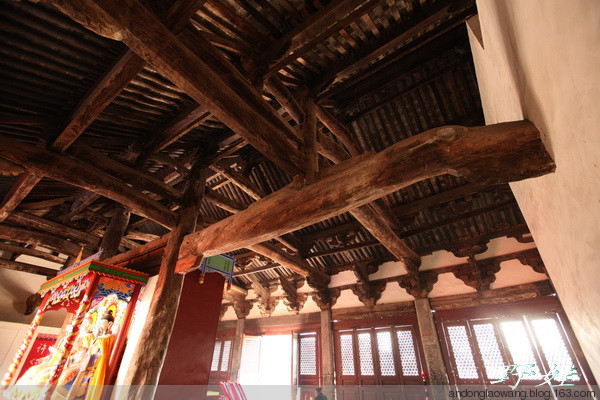
Jiyuan Fengxianguan.
Location:
Fengxianguan is situated at 265 Jingliang North Street, Jiyuan City, Henan Province. Its central location makes it convenient to explore other nearby attractions in the region.
For the most accurate and up-to-date information, it’s a good idea to check local resources or contact the site directly before your visit. Enjoy immersing yourself in the rich history and cultural significance of this ancient Taoist temple!
How to Get There
Getting to Jiyuan Fengxianguan (奉仙观), located in the picturesque city of Jiyuan in Henan Province, is relatively straightforward, thanks to its well-connected transportation network.
By Air
The nearest major airport is Zhengzhou Xinzheng International Airport (CGO), approximately 120 kilometers from Jiyuan. From the airport, you can hire a taxi or use a ride-sharing service to reach Jiyuan. Alternatively, you can take a long-distance bus from the airport to Jiyuan’s central bus station. Buses operate regularly, making this a convenient option for travelers.
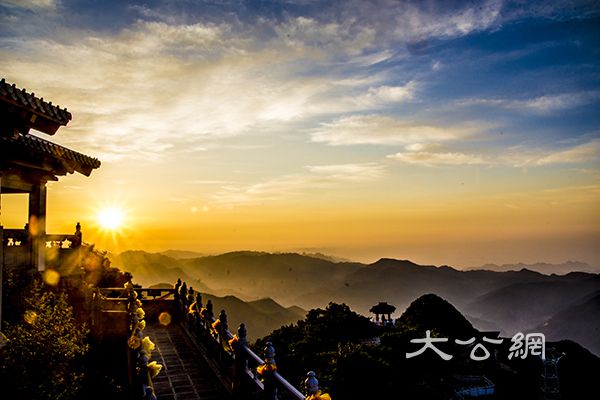
Jiyuan Fengxianguan.
By Train
Jiyuan also has a train station, which connects it to several major cities in China. High-speed trains run frequently from Zhengzhou to Jiyuan, with the journey taking about an hour. Once you arrive at the Jiyuan Railway Station, you can take a taxi or local bus to Jiyuan Fengxianguan. The distance from the train station to the temple is roughly 10 kilometers, making it a quick trip.
By Bus
For those traveling from neighboring cities, long-distance buses are available from Zhengzhou, Luoyang, and other locations. The Jiyuan Bus Station serves as the main hub for intercity buses. Upon arrival, you can take a taxi to Fengxianguan.
Local Transportation
Once in Jiyuan, taxis are readily available and can be hailed on the street or booked via local ride-hailing apps. Public buses also serve various routes across the city, with stops near Jiyuan Fengxianguan. If you’re feeling adventurous, renting a bike or scooter can be a fun way to explore the area at your own pace.
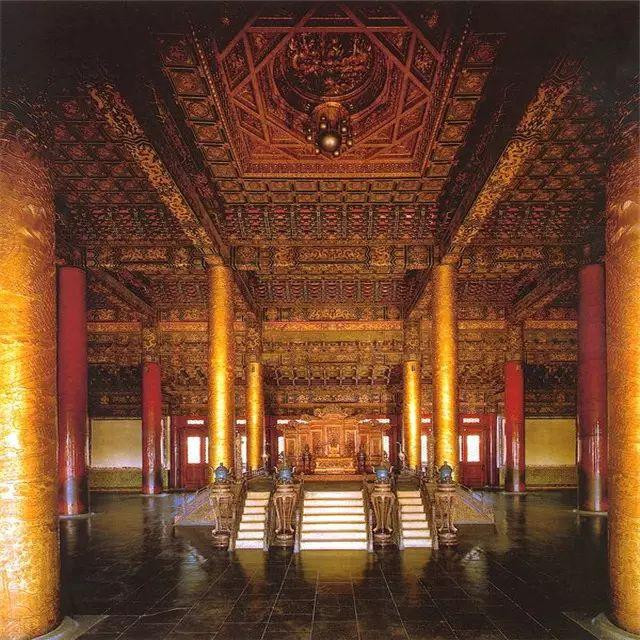
Jiyuan Fengxianguan.
Accessibility
Jiyuan Fengxianguan is relatively easy to navigate for visitors with mobility challenges. The temple grounds are compact, and while some areas may have steps, the main halls are accessible. It’s advisable to wear comfortable shoes as you explore the site.
In summary, whether you arrive by air, train, or bus, reaching Jiyuan Fengxianguan is simple and efficient, allowing you to immerse yourself in this historic site without hassle.
Local Cuisine and Accommodation
When visiting Jiyuan Fengxianguan (奉仙观), you’ll find that the surrounding area offers a delightful mix of local cuisine and comfortable accommodation options that cater to various tastes and budgets.
Culinary Delights
-
High Ji Qing Xiang Yuan (高记清香园)
Located about 47.5 km from Fengxianguan, this popular eatery is renowned for its authentic local snacks. The menu features a variety of dishes, with prices starting at just ¥18 per person, making it an affordable option for travelers looking to indulge in traditional flavors. -
Halal Ma Jie Shan Beef Soup (清真马杰山牛肉汤馆)
Just 45.4 km away, this restaurant specializes in beef soup that is both hearty and flavorful. With an average cost of around ¥22 per person, it’s a perfect stop for those seeking a delicious and filling meal. -
Zhen Bu Tong Restaurant (真不同饭店)
A bit further at 47.2 km from the site, this establishment is famous for its Henan cuisine, particularly the renowned Luoyang water banquet. Expect to spend about ¥83 per person here, but the experience and the culinary offerings are well worth it. -
Local Street Food
For a more casual dining experience, wandering through local markets will unveil an array of street food options. Don’t miss trying the Hu La Tang (胡辣汤), a spicy soup that is a staple in the region, or the various dumplings and skewers offered by street vendors.
Accommodation Options
-
Jiyuan Kingtime Hotel (济源金典时尚酒店)
This hotel is a great choice for travelers seeking modern amenities and comfort. It features stylish rooms and is conveniently located near the main attractions of Jiyuan. Expect rates to start around ¥300 per night. -
Jiyuan Ya Shi Da Hotel (济源雅士达酒店)
Offering a blend of comfort and affordability, this hotel provides cozy accommodations with good service. Prices typically range from ¥200 to ¥250 per night, making it a budget-friendly option. -
Longyuan Quick Hotel (济源龙苑快捷酒店)
Perfect for budget travelers, this no-frills hotel offers basic yet clean accommodations at an economical price, usually around ¥150 per night. It’s a suitable option for those looking to explore the area without breaking the bank. -
Local Guesthouses
For a more intimate experience, consider staying at one of the local guesthouses or homestays. These often provide a more personal touch and allow visitors to immerse themselves in local culture. Prices and amenities vary, so it’s advisable to check reviews beforehand.
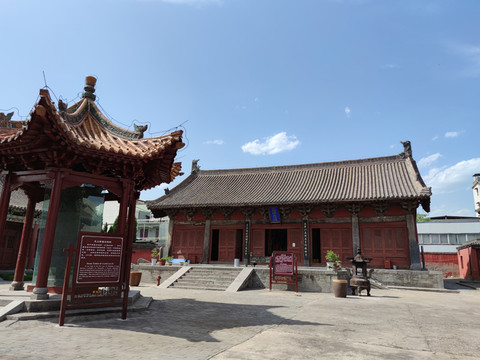
Jiyuan Fengxianguan.
Conclusion
With its diverse culinary scene and a range of accommodation options, Jiyuan Fengxianguan is well-equipped to cater to the needs of every traveler. Whether you’re indulging in local delicacies or resting in a comfortable hotel, your visit to this historical site will surely be complemented by the vibrant offerings of the region.
Frequently Asked Questions
-
What is Jiyuan Fengxianguan?
Jiyuan Fengxianguan, also known as Fengxian Temple or Jingliang Temple, is a significant historical and architectural site located in Jiyuan City, Henan Province, China. It is renowned for its unique wooden structure and is an important Taoist site with a rich history dating back to the Tang Dynasty. -
What are the opening hours for Fengxianguan?
The specific opening hours for Fengxianguan can vary, so it is recommended to check with the site directly or consult local tourism resources for the most accurate information before planning your visit. -
Is there an admission fee to visit Fengxianguan?
Admission to Fengxianguan is free, making it an accessible destination for both tourists and local visitors interested in exploring its historical significance and architecture. -
How long should I plan to spend at Fengxianguan?
A visit to Fengxianguan typically takes about 1 to 2 hours. This allows ample time to explore the main structures, including the impressive Sanqing Hall, and appreciate the serene surroundings. -
What are the main attractions within Fengxianguan?
The key attractions at Fengxianguan include the Sanqing Hall, known for its distinctive wooden beams made from jujube and mulberry trees, as well as several historical inscriptions and relics from various dynasties, showcasing the temple’s rich heritage. -
Can I take photographs inside Fengxianguan?
Yes, visitors are generally allowed to take photographs within the temple grounds. However, it’s advisable to be respectful of the site and refrain from using flash in areas where it might disturb the atmosphere or other visitors. -
Are there any nearby attractions to visit after Fengxianguan?
Yes, there are several nearby attractions, including Wangwu Mountain, which offers beautiful scenic views, and other historical sites such as the Jishui Temple. These sites can complement your visit to Fengxianguan and enhance your understanding of the local culture. -
What should I know before visiting Fengxianguan?
Before your visit, consider wearing comfortable shoes for walking, as the temple grounds may require some exploration. It’s also wise to check the weather forecast and prepare accordingly, since many areas are outdoors. Lastly, familiarize yourself with any local customs or etiquette related to visiting religious sites.
Final Thoughts on Your Trip
Visiting Jiyuan Fengxianguan is not just a journey through ancient architecture; it is an invitation to connect with the spiritual heritage of Taoism and the rich tapestry of Chinese history. This serene site, nestled in the heart of Jiyuan, offers a unique glimpse into a bygone era, marked by its remarkable wooden structures and tranquil environment. As you wander through the halls of Fengxianguan, let the whispers of ancient scholars and practitioners inspire you.
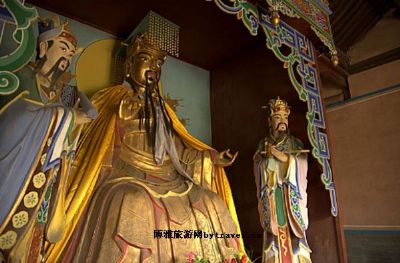
Jiyuan Fengxianguan.
Whether you are drawn by the allure of its architectural beauty, the significance of its spiritual legacy, or simply the peaceful ambiance it provides, Fengxianguan promises a reflective and enriching experience. Take a moment to breathe in the essence of this national treasure, allowing it to remind you of the enduring power of tradition and the beauty of simplicity.
In a world that often rushes past, let your visit to Fengxianguan be a gentle reminder to pause, reflect, and embrace the wisdom found in history.
